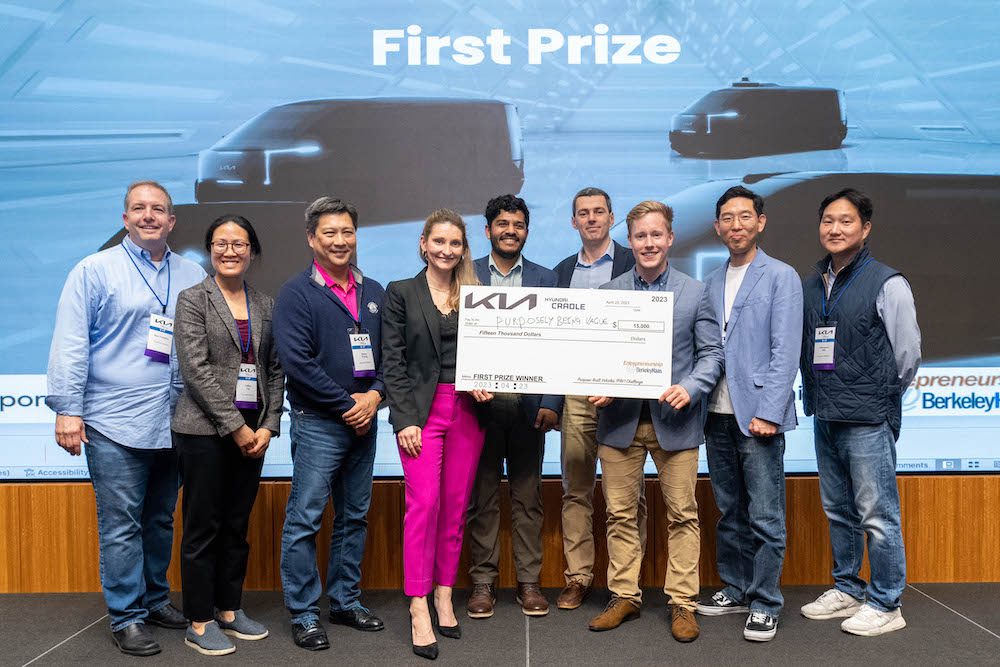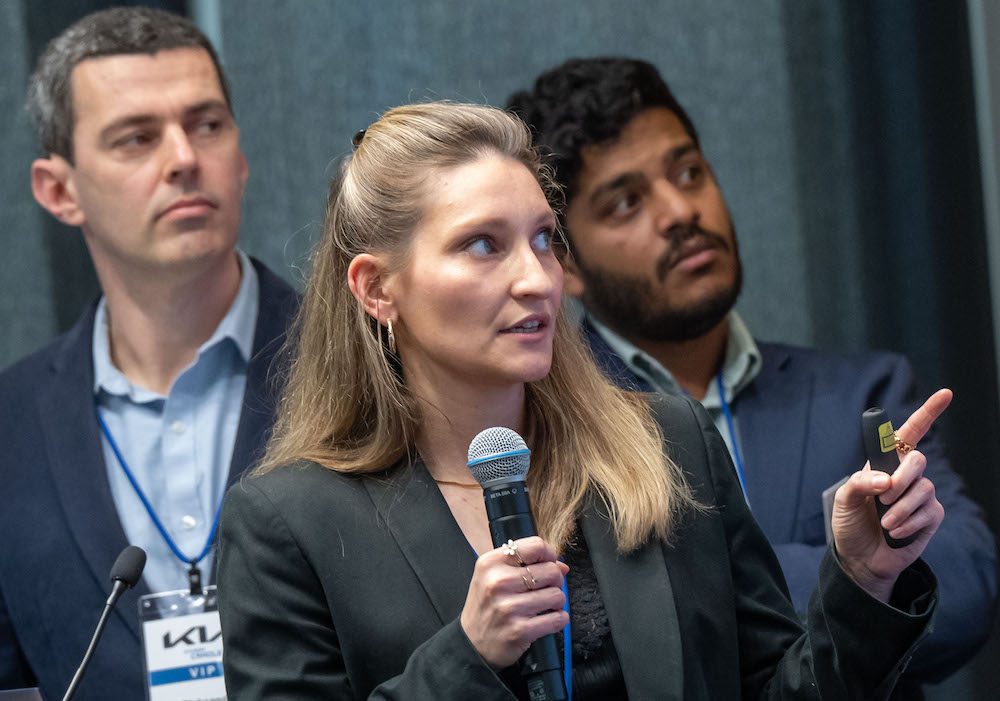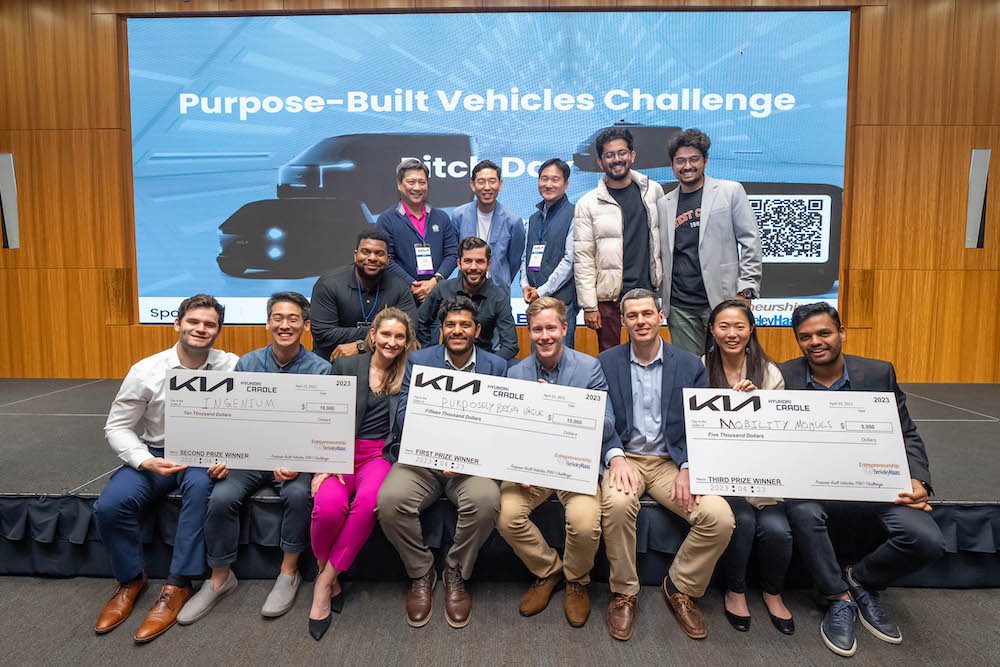
A student team that imagined a plan for Hyundai Cradle to build an electric-powered mobile medical fleet and market it in North America won the 2023 Haas Purpose-Built Vehicles (PBV) Challenge.
Hyundai Cradle, Hyundai Motor Group’s Mountain View, Calif.-based open innovation and investment arm, sponsored the challenge, which was held April 23 at Berkeley Haas.
Cradle challenged students to develop novel business models for the company’s future PBV market launch in North America. Hyundai Motor Group is in the final stages of building a flexible automobile base, called a skateboard, that can be used to produce many kinds of PVBs—vehicles ranging from ambulances to passenger shuttles to delivery fleets for small businesses.
The first-place team took home $15,000 for its pitch. Winning team members included Srivatsa Chakravarthy, EWMBA 25; Oleksandr Krotenko, EMBA 23; Victoria Marcus, EWMBA 25; and Simeon Ryan, EWMBA 25.
The competing teams, composed of graduate students from across all three Haas MBA programs and the UC Berkeley School of Information, participated in a semester-long series of training sessions, focused on the Lean Startup method and customer discovery training. The top three finalist teams were then tasked with finding and validating novel business models for PBVs that they pitched to judges at the end of the program.
“This was a fantastic way to showcase students from across all three of our MBA programs,” said Rhonda Shrader, executive director of the Berkeley Haas Entrepreneurship Program (BHEP). “The program also provided a perfect opportunity for our MBA students to work with top graduate students from across the campus.”
Solving real problems
The winning group pitched a fix for emergency medical services that they described as “antiquated, expensive, and ripe for technological disruption.” The team suggested that Cradle partner with industry leader AMR (American Medical Response) to capitalize on the company’s market share and need to contract with an outsourced fleet.

Marcus, who works in corporate finance, said she was excited to work on solving a real problem experienced by a company outside of her industry.
“Going through the pitching process with judges was the pinnacle business school experience I’ve always wanted to try since I started my EWMBA,” she said. During Lean Launch, she said her group conducted more than 30 interviews with potential clients. “We had to pivot a couple times from our original idea to make sure we were solving problems for them,” she said. “Ultimately this led us to think hard and adapt so we could develop a detailed business plan that would benefit potential clients.”
During the pitch day, Kia’s vice president of new business planning, Ju yup Kang, a judge for the competition, outlined how KIA is transforming from a car company to a “full mobility solution provider.” Henry Chung, senior vice president and head of Hyundai Cradle, said the students had clearly put in a lot of effort to develop creative solutions to difficult problems.
Chung; Kang; Changwoo Kim, a chief coordinator at Cradle; Tafflyn Toy, an open innovation project manager at Hyundai Cradle; and Nick Triantos, chief architect, automotive system software at Nvidia, served as the final challenge judges.
Team Ingenium took second place ($10,000) with a pitch for all-in-one fleet management. Members included Reggie Draper, EMBA 23; Michael LaFramboise, MBA/MEng 24; Matthew McGoffin, MBA/MEng 23; and Michael Yang, MIMS (master of information management and systems) 23.
Team Mobility Moguls took third place ($5,000) for a strategy that addressed a mobile future for police & security. Team members included Anmol Aggarwal, EWMBA 24; Suveda Dhoot, MBA 24; Hrishikesh Nagaraju, MIMS 24; Nithin Ravindra, EWMBA 23, MIMS 24; and Lutong Yang.
